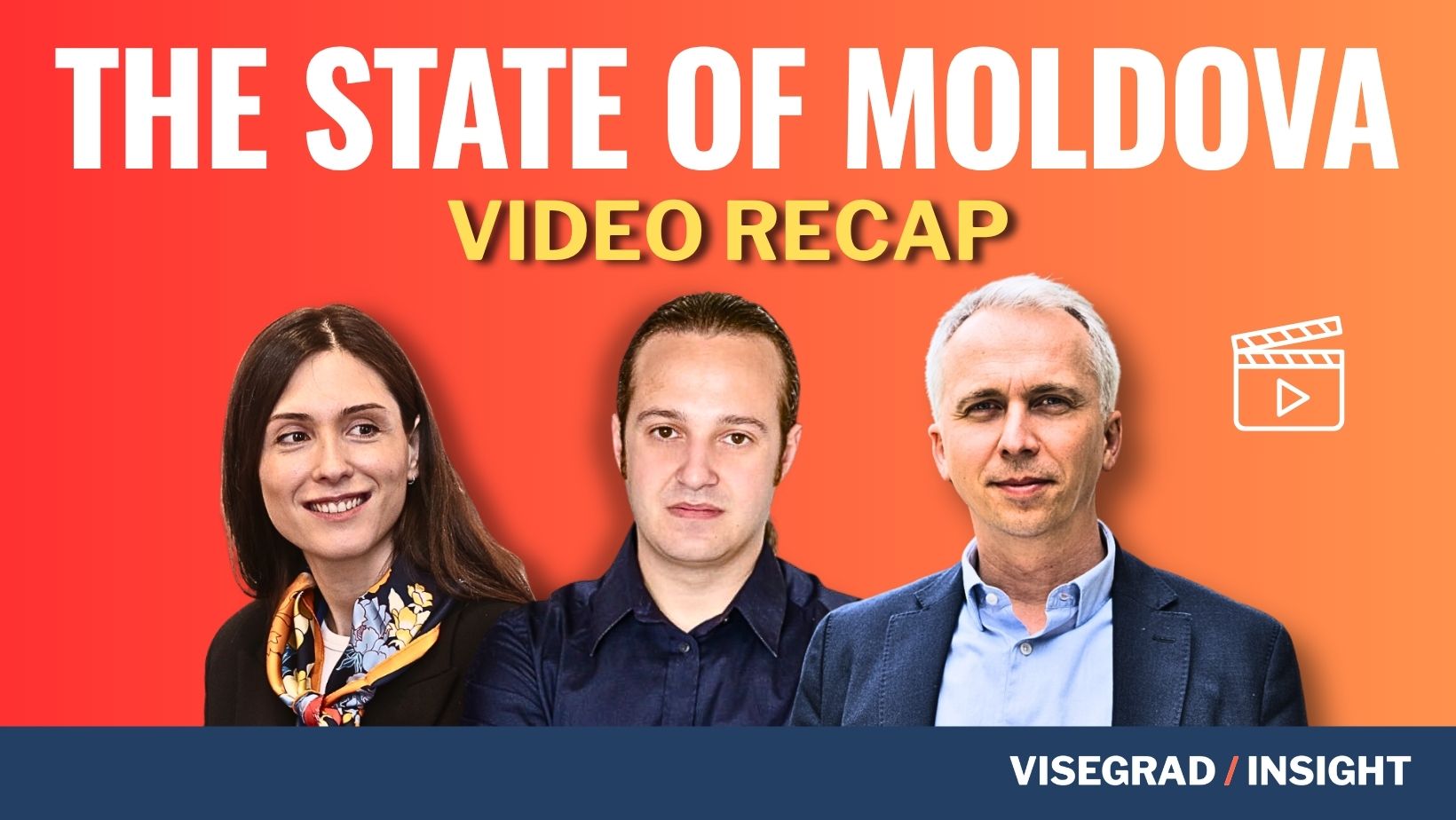Despite an unprecedented disinformation campaign and attempts at interference, the pro-European Action and Solidarity Party (PAS) secured a decisive victory, ensuring the continuation of reforms and EU accession talks. What does this result mean for democratic resilience in Central and Eastern Europe?
[WATCH THE VIDEO RECAP BY SCROLLING DOWN]
Big picture:
During the recent parliamentary elections, Moldova demonstrated whole-of-society resilience against a comprehensive Russian interference campaign targeting its elections and pro-European course.
Driving the story:
Wojciech Przybylski, Editor-in-Chief of Visegrad Insight, Eto Buziashvili, Research Associate at the Atlantic Council and Madalin Necsutu, a Romanian journalist based in Chișinău, discussed the scale of illicit financing, online manipulation and offline disruption tactics employed by Russia to discredit Moldova’s parliamentary elections.
State of play:
• Vote buying industrialised via cash, crypto and Russia-linked rails, tied to Ilan Șor’s networks.
• Platforms, especially Telegram and TikTok, amplified anti-EU narratives; cloned mass media sites blurred trust signals.
• Prosecutors, police and security services ran 2,500 searches, disqualified actors, and disrupted street-level provocation networks.
• Cyber pressure spiked before and during voting with mass DDoS and credential attacks.
What they are saying:
“Moldova is a sandbox… a reference point for the efforts across all of the European Union.” – Wojciech Przybylski.
“Moscow’s intent went beyond swinging a few seats. It sought to corrode trust in institutions and Moldova’s European future.” – Eto Buziashvili.
“Prosecutors stepped up this time, opening criminal cases and strengthening actions against the Șor network.” – Madalin Necsutu.
By the numbers:
• ~2,500 searches targeting vote-buy schemes.
• 4,000+ government-linked sites hit by DDoS on election eve/day.
• 14 million login attempts recorded the night before voting.
• Country population: ~2.4 million vs tens of millions of manipulated video views.
Zoom out: Tactics used in Moldova mirror methods tested across Europe. Moldova’s response is different, owing to rapid transparency, investigative journalism and society-wide coordination.
Between the lines:
Some speakers highlighted how different the measures were compared to previous elections in Moldova, and that their success does not necessarily reflect the resolve of the winning political party. Rather, it is a result of a coordinated and interconnected cooperation between the government, media and the civil society.
Public, timely disclosure of raids, seizures and attack metrics built procedural trust faster
Yes, but: The scale of Russia’s involvement is still unprecedented. Whether or not Moldova’s pro-European actors would be able to coordinate themselves as effectively in the future elections is a question to ask.
The bottom line: Moldova’s defence worked because institutions, media and civic actors moved in lockstep and told the public what they were doing as they did it.
Speakers:
Eto Buziashvili – Research Associate at the Atlantic Council’s Digital Forensic Research Lab, where she leads research on Russian influence operations, foreign interference, and hybrid threats, and is engaged in building resilience of government, civil society, and media actors worldwide. Her work regularly informs public debate and policy conversations, and in 2024, Eto was named one of NATO’s “20 Women Fighting Information Threats.”
Madalin Necsutu – Romanian journalist based in Chișinău. Since 2017, he has served as the correspondent for Balkan Insight in Moldova. He specializes in political and investigative journalism, focusing primarily on Eastern Europe and the dynamics of ex-Soviet states. Starting his career in 2006, Madalin has made significant contributions to leading Romanian media outlets, including the Mediafax news agency and daily newspapers such as ZIUA, Curentul, and Evenimentul Zilei.
Moderator: Wojciech Przybylski – political analyst heading Visegrad Insight’s policy foresight on European affairs. His expertise includes foreign policy and political culture. Editor-in-Chief of Visegrad Insight and President of the Res Publica Foundation. Europe’s Future Fellow at IWM – Institute of Human Sciences in Vienna and Erste Foundation.
